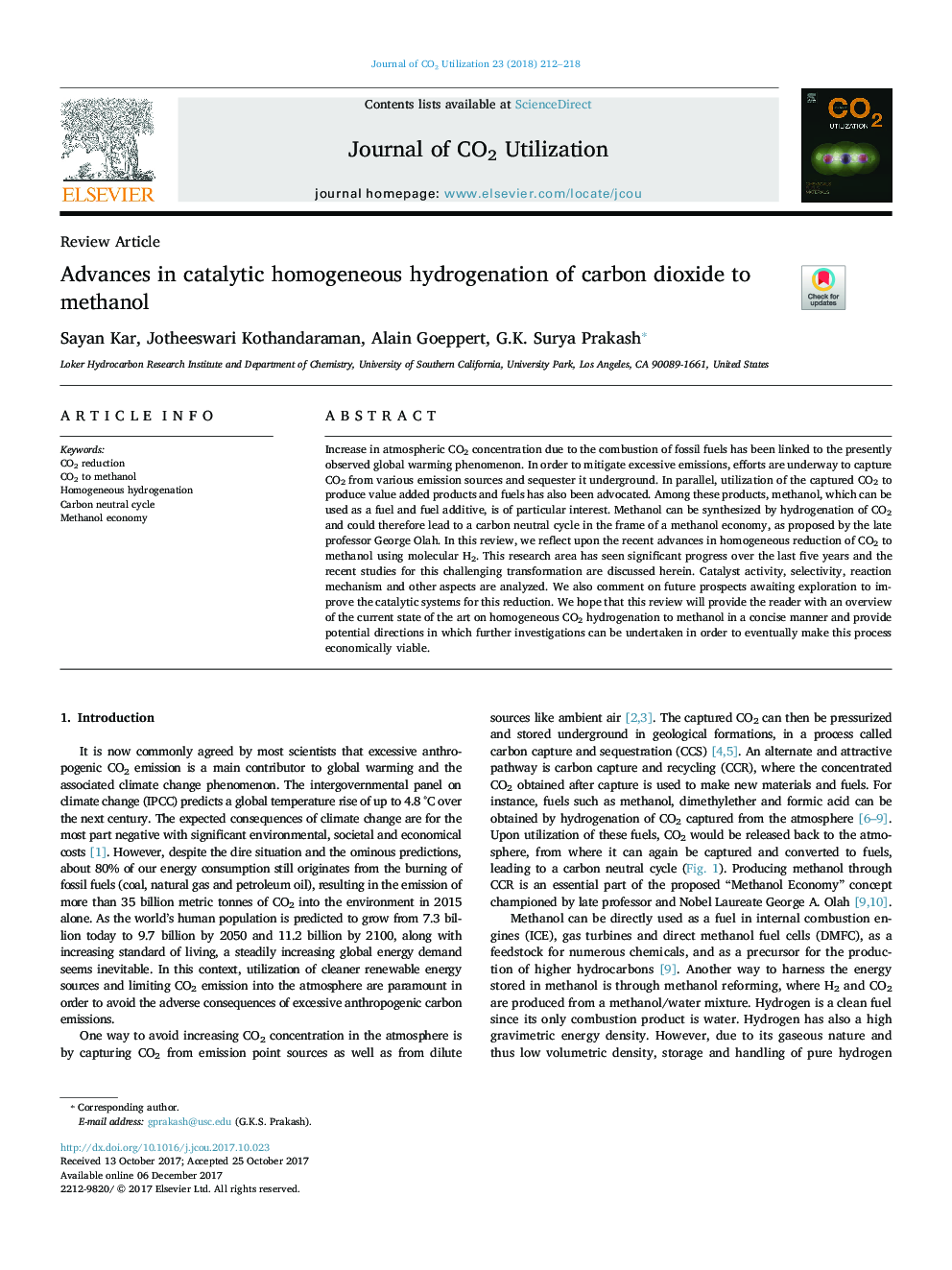| Article ID | Journal | Published Year | Pages | File Type |
|---|---|---|---|---|
| 6529034 | Journal of CO2 Utilization | 2018 | 7 Pages |
Abstract
Increase in atmospheric CO2 concentration due to the combustion of fossil fuels has been linked to the presently observed global warming phenomenon. In order to mitigate excessive emissions, efforts are underway to capture CO2 from various emission sources and sequester it underground. In parallel, utilization of the captured CO2 to produce value added products and fuels has also been advocated. Among these products, methanol, which can be used as a fuel and fuel additive, is of particular interest. Methanol can be synthesized by hydrogenation of CO2 and could therefore lead to a carbon neutral cycle in the frame of a methanol economy, as proposed by the late professor George Olah. In this review, we reflect upon the recent advances in homogeneous reduction of CO2 to methanol using molecular H2. This research area has seen significant progress over the last five years and the recent studies for this challenging transformation are discussed herein. Catalyst activity, selectivity, reaction mechanism and other aspects are analyzed. We also comment on future prospects awaiting exploration to improve the catalytic systems for this reduction. We hope that this review will provide the reader with an overview of the current state of the art on homogeneous CO2 hydrogenation to methanol in a concise manner and provide potential directions in which further investigations can be undertaken in order to eventually make this process economically viable.
Related Topics
Physical Sciences and Engineering
Chemical Engineering
Catalysis
Authors
Sayan Kar, Jotheeswari Kothandaraman, Alain Goeppert, G.K. Surya Prakash,
